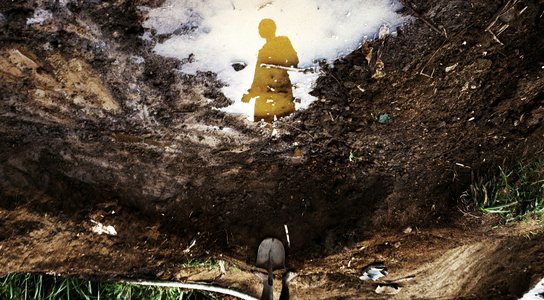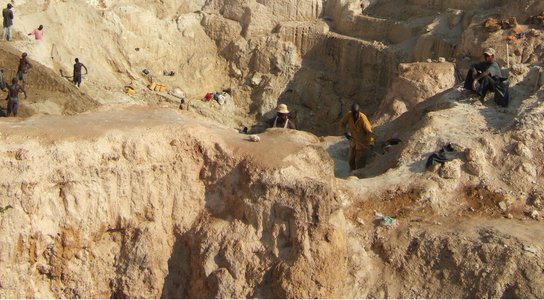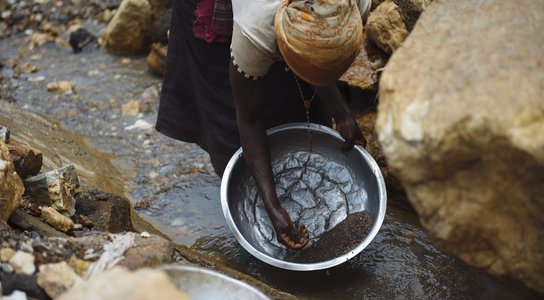Democratic Republic of Congo’s decision today to abandon reform of its mining law means that the country is missing a crucial opportunity to improve the governance of its mining sector and dramatically help reduce poverty across the country, Global Witness said today.
Congo’s Mines Minister told investors that the country has abandoned plans to update its mining law, according to Bloomberg. The Congolese government has been negotiating changes to its outdated 2002 law since 2012, meaning that four years of reform efforts have been scrapped. The decision comes just nine months before presidential elections are due to be held that could lead to Congo’s first peaceful transition of power.
Congo is the world’s largest cobalt producer and Africa’s largest copper producer. It possesses trillions of dollars of mineral wealth but corruption and mismanagement have diverted vast sums away from the public treasury and into the hands of militia leaders and wealthy elites. Congo’s 80 million people, most of whom live in extreme poverty, see little benefit. The country has suffered from cyclical violence over the last two decades, in part fuelled by competition over mineral wealth.
“Weak regulation of the mining sector means that Congo’s government does not have the revenues to pay for the schools, hospitals and roads that the population desperately needs. Scrapping the effort to reform this law is a huge missed opportunity in a country where, if managed well, revenues from mining could offer a critical route out of poverty and contribute to stability,” said Nathaniel Dyer, Congo team leader at Global Witness. “Congo’s government appears to have caved in to industry pressure to maintain the cosy fiscal terms and lax regulations governing Congo’s mining sector.”
Despite strong growth in recent years, Congo’s mining sector has been undermined by poor governance that has lost the country huge mining revenues. Between 2010 and 2012 a series of five opaque mining deals with anonymous offshore companies linked to a friend of President Joseph Kabila cost the state at least $1.36 billion – twice the country’s annual health and education spending combined. In eastern Congo up to 98 percent of artisanal gold production is smuggled out of the country, again losing Congo millions of dollars in tax revenues that could be spent on public works. Weak rules and a lack of enforcement have facilitated these losses.
Discussions on the revision of the mining law involved international legal consultants and a series of large consultation meetings in the capital Kinshasa. NGOs and the private sector had agreed on some reforms. A draft new law from March 2015 had included promising albeit vague new language on the publication of contracts, a transparent tender process, and the disclosure of beneficial ownership information. The government has now inexplicably abandoned all of this.
“Congo cannot afford to stick with a system that allows multi-million dollar deals to be struck in secret, rather than by open tender, and the real owners of mining rights to hide behind anonymous companies. The government must reverse this decision and resume consultations on a new law that will ensure that mining revenues benefit the Congolese people,” said Dyer.
/ ENDS
Notes to editor:
- A draft law was submitted to
parliament in March 2015 but swiftly withdrawn, Global Witness commented on
this law. The press release can be found here: https://www.globalwitness.org/en-gb/press-releases/democratic-republic-congo-plans-water-down-laws-against-mining-corruption/
- Global Witness’s analysis of the most recent proposed changes to the
mining law can be found here: https://www.globalwitness.org/documents/18091/GW_DRC_mining_code_analysis_-_15.10.15.pdf
- In its final 2013 report, the United Nations Group of Experts on
Democratic Republic of Congo estimated that 98 percent of Congo’s 2013
artisanal gold production was smuggled abroad.
- Presidential elections are
slated to take place in the country in November but may be postponed. Congolese
opposition groups accuse President Kabila of attempting to stay beyond his
constitutionally-permitted two terms in power.
- The current mining law does
not include provisions for mandatory public tenders or for beneficial ownership
details to be revealed. At the moment, the law does not guarantee the
publication of mining contracts. Instead this is stipulated by a Prime
Minister’s decree [arrêté], which could be withdrawn at any time.
- Congo lost over $1.36
billion in five secret deals around 2010 and 2012 where some of Congo’s prize
mining assets were sold cheaply without public tender to offshore companies,
the real owners of which are unknown: https://www.globalwitness.org/en/campaigns/oil-gas-and-mining/congo-secret-sales/
- Congo’s current mining
legislation dates from 2002 when the country was emerging from the Second Congo
War.
You might also like
-
Campaign Democratic Republic of Congo
The Democratic Republic of Congo (DRC) has an immense wealth of natural resources. But instead of driving development, these riches are benefiting predatory elites, armed groups and cowboy firms.
-
Briefing Conflict Minerals in Eastern Congo
Resource-fuelled conflict has contributed to instability in Congo’s east for over two decades.
-
Campaign Responsible minerals
The global minerals trade has funded abuses and armed conflict for decades. Minerals that have bankrolled social and environmental harms still end up in our mobile phones, laptops and cars.